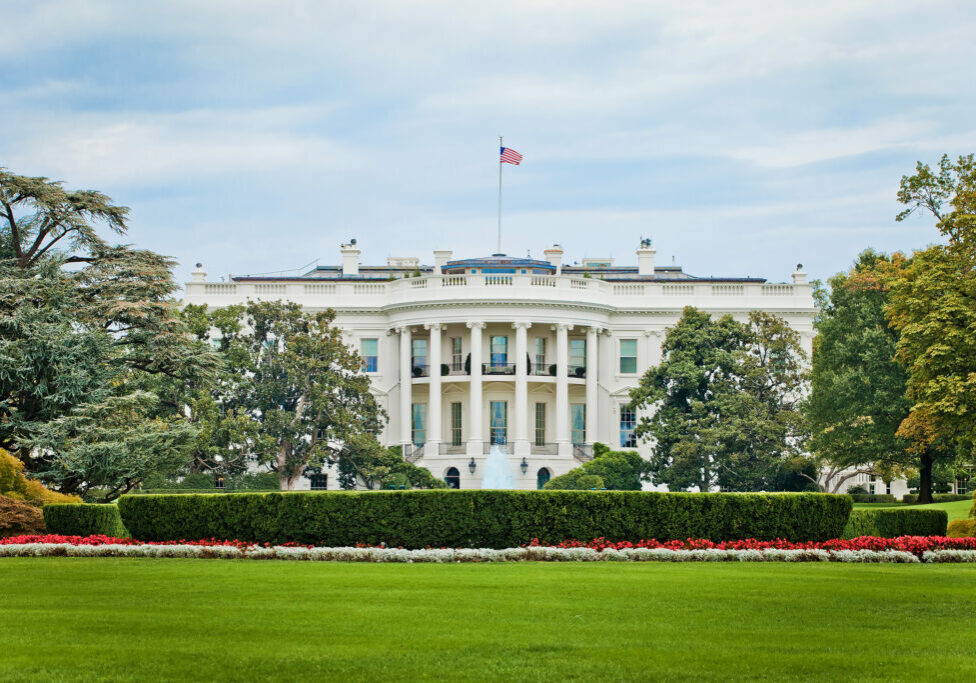The Trump administration is considering a policy change that would run afoul of traditional conservative dogma – a tax increase on millionaires. The Washington Post’s Jeff Stein explains what’s driving Vice President JD Vance, budget director Russell Vought and others to explore higher taxes on the wealthy:
The weighing of multiple options reflects the difficult math facing the GOP as Republicans try to extend their 2017 tax law, which could add more than $4 trillion in new tax cuts as the national debt surges. GOP lawmakers have explored significant spending cuts — including to Medicaid, the health insurance program for the poor — but are aware of the political drawbacks of doing so while extending hundreds of billions of dollars in tax cuts for the most affluent Americans that the 2017 law delivered.
Stein breaks down some ideas that are being considered:
One proposal would allow the top tax rate to revert to its level before the 2017 tax law, from 37 percent to 39.6 percent. (This would raise taxes for those with more than $626,350 in earnings.) … Allowing the top tax rate to go back to 39.6 percent would raise roughly $400 billion over the next decade, according to Kyle Pomerleau, senior fellow at the American Enterprise Institute, a center-right think tank.
Raising taxes on the income of the ultrawealthy could have a minimal impact on reducing economic inequality:
“If you want to tax billionaires, you have to go after their wealth. It’s quite plausible they raise the top rate because it’s not where the money is,” Steve Rosenthal, who was a senior fellow at the Tax Policy Center, a nonpartisan think tank, said of the GOP. “The money is in the wealth, the retirement savings, the unrealized gains, all of which goes tax-free. So taxing income may not be that big a deal.”
Sending more kids to adult courts
Senate Bill 74, authored by Rep. Alan Seabaugh and supported by Attorney General Liz Murrill, would make it easier to send 15- and 16-year-olds charged with felony crimes to adult courts. The legislation is similar to a constitutional amendment that more than 65% of state voters rejected last month. The Louisiana Illuminator’s Julie O’Donoghue reports:
There is also broad consensus that rehabilitation provided in the juvenile system – as opposed to punishment provided in adult prisons – is especially effective for teenagers because their brains haven’t fully developed yet. “There are tons of studies that show that is the worst thing you can do and all it does is create another generation of criminals,” Jay Dixon, the former state public defender in Louisiana who now works in Massachusetts, said about the plan to put more minors in adult court.
As O’Donoghue explains, the bill would put more strain on already overburdened district courts:
District courts with juvenile sections in Caddo, Orleans, Jefferson and East Baton Rouge parishes are already busy, however, and don’t have the capacity or facilities to take on a large influx of underage defendants, critics say. State laws require juvenile cases to be handled on a much faster timeline. Minors have to go to trial within three months of their arrest, whereas adult cases are allowed to languish for over a year, [Retired Caddo Parish juvenile court judge, Paul] Young said.
The conservative case for DEI
Diversity, equity and inclusion (DEI) initiatives are in the crosshairs of the Trump administration and the MAGA movement at large. Jabari Simama, author, consultant and former member of the Atlanta City Council, writing in Governing, explains why conservatives should be supporters of DEI:
If Republican leaders took a closer look, they would find that DEI aligns closely with conservative values: self-reliance, equal opportunity and the principle that every American deserves a fair shot. DEI is about making sure that every individual, regardless of background, has the tools and support to contribute meaningfully to our society. It promotes cultures in workplaces, schools and other institutions where everyone has a better chance to be seen, heard and valued.
The consequences of ending Direct File
The White House is planning to terminate Direct File, the IRS’s free tax-filing service. Jon Whiten of the Institute on Taxation and Economic Policy explains how the program would have saved taxpayers time and money:
Research from Code for America and the Economic Security Project previously found that, at maturity, Direct File could save the average user $160 in filing fees and hours of their time each year, which provides Americans a total of $11 billion annually between filing fees and time costs. It could also deliver up to $12 billion a year in additional federal tax credits to eligible families.
Route Fifty’s Kaitlyn Levinson reports how nixing the program could impact states:
Several states have also developed free, state-level tax filing services alongside Direct File, known as the FileYourStateTaxes program. … “This year, it felt like we knew it would work, and we were just making it better,” said Amanda Renteria, CEO of the civic tech nonprofit organization Code for America. The Direct File and FileYourStateTaxes systems, for instance, prepopulates people’s tax data into their return forms to reduce the time required for manual data entry and cuts the risk of errors, which can be costly for governments to correct.
Number of the Day
$264.8 million – Amount of money that international students studying at Louisiana colleges and universities contributed to the state’s economy during the 2023-2024 academic year. (Source: NAFSA)
